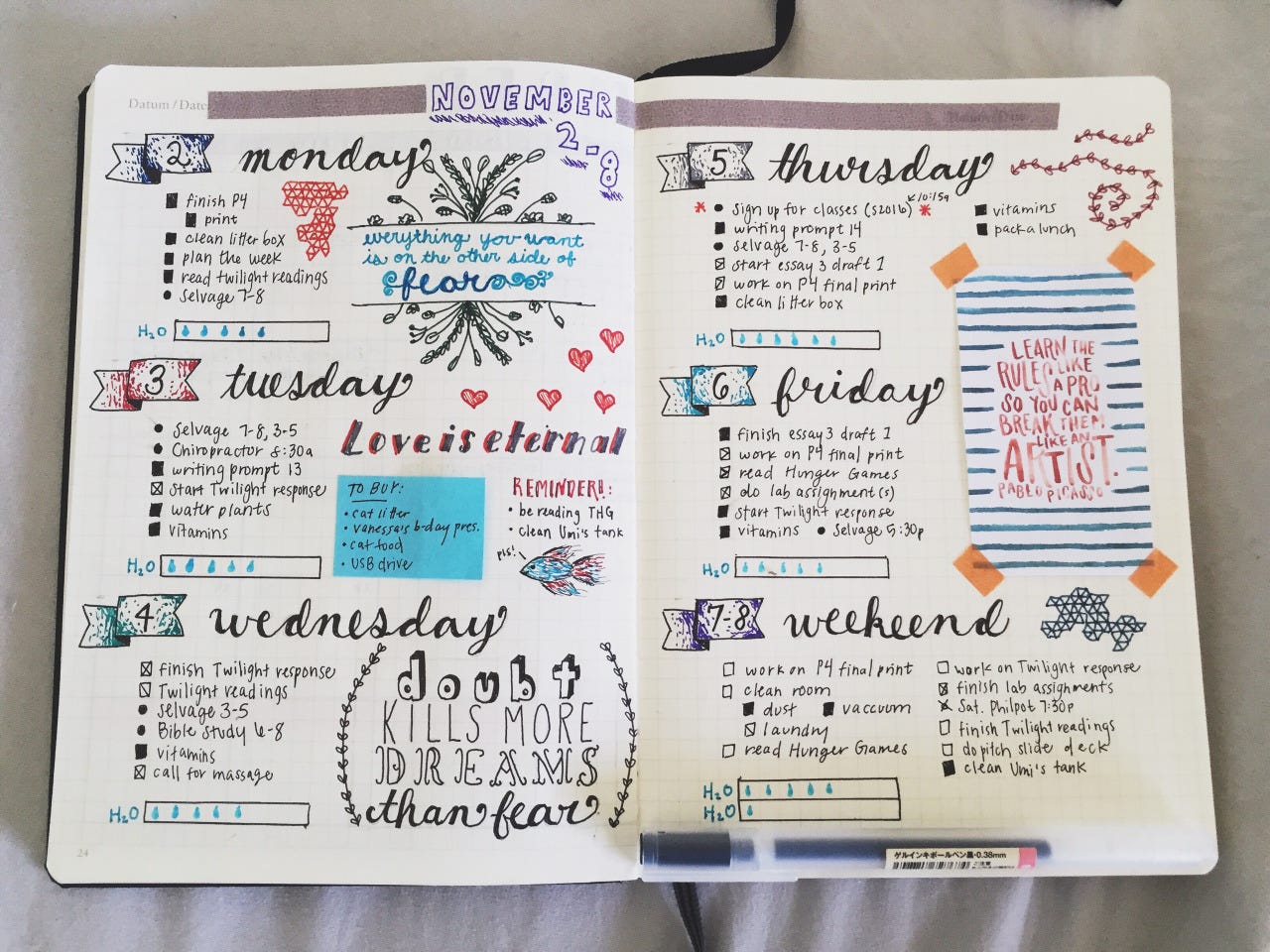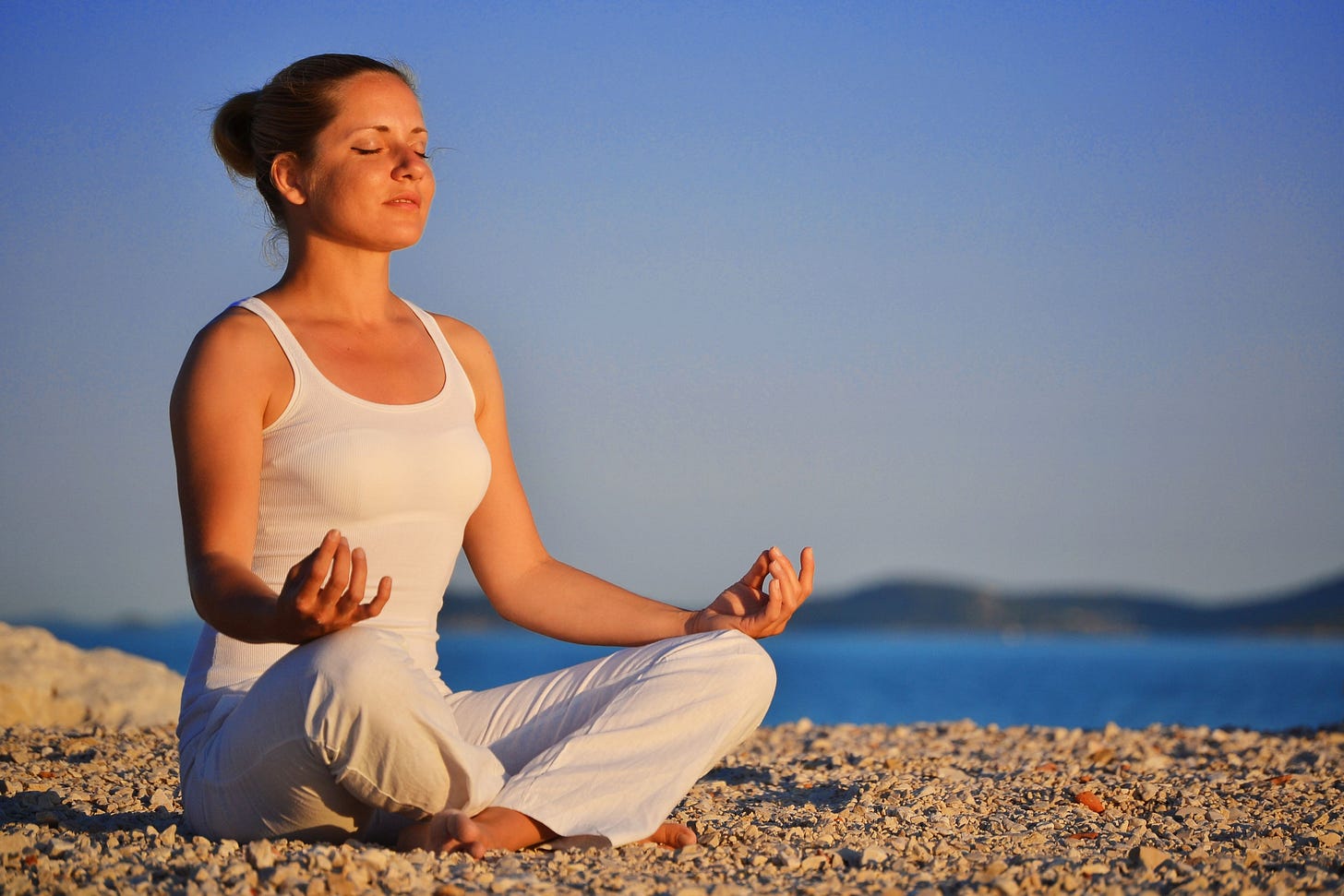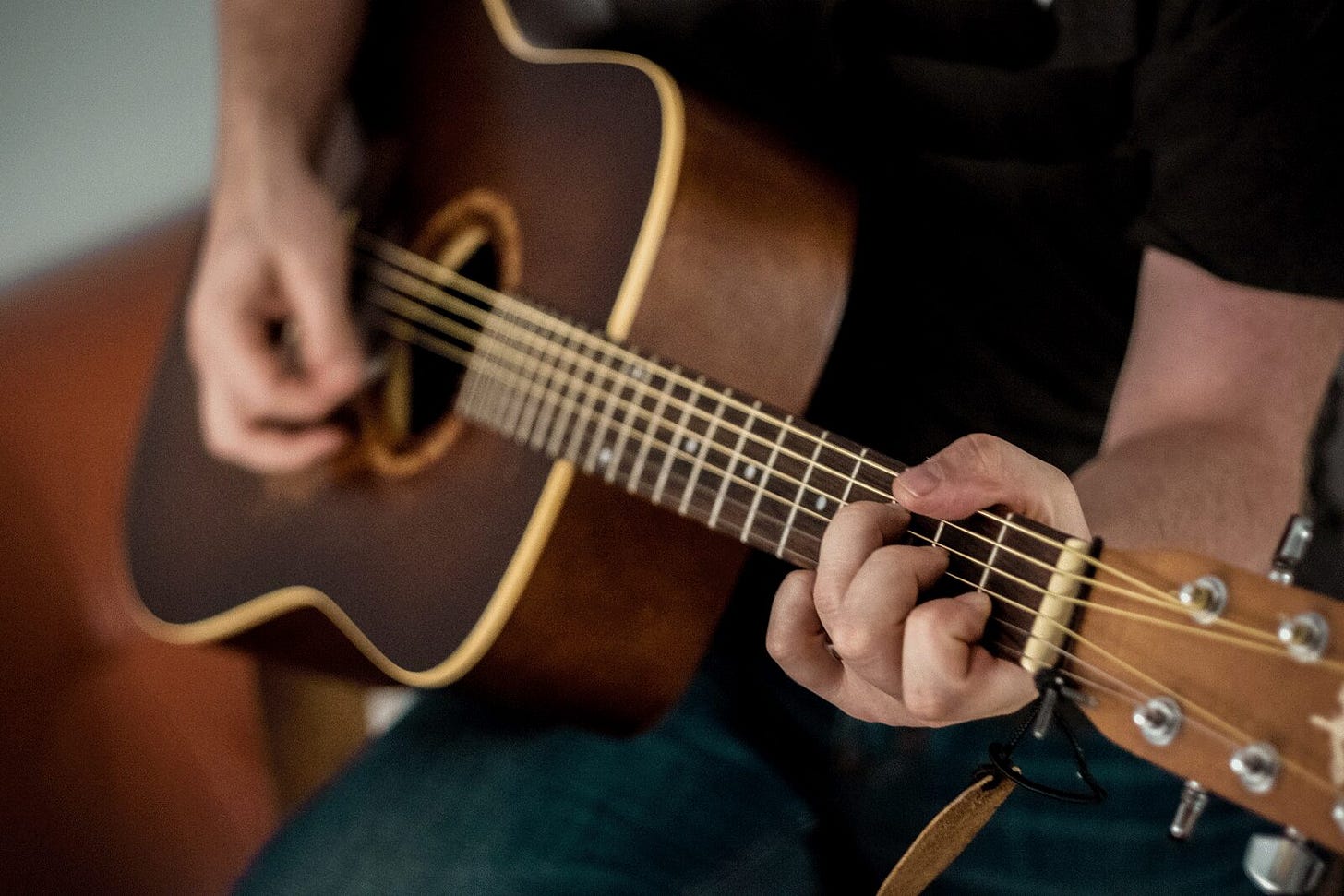The Holistic Self Help Guide to Depression & Low Mood 🌿👨🏻⚕️Herbal Docs - CONTINUED
Use the Accountability Guide to Think Better, Feel Better, Live Better ✅
Physical Activities - How to Get Started 🏃♂️👇
1) Aerobic Exercise
So which workouts fight depression best? To date, the strongest evidence seems to support aerobic exercise. This includes running, swimming, walking, hiking, aerobics classes, dancing and kickboxing.
2) Lift Weights
How do barbells and similar equipment brighten one’s mood? For people with mild to moderate depression, weight training is a meditative practice. While you are weight training, your mind is focused on the task and not thinking about anything else.
Start slowly, 3x a week and use the assistance of a personal trainer if needed.
3) Yoga
Eastern traditions such as yoga have a wonderful antidepressant effect. They improve flexibility, involve mindfulness, which breaks up repetitive negative thoughts, increase strength, make you aware of your breathing, improve balance; and contain a meditative component.
Free guides are available all over Youtube, or join a class to ensure you’re doing the movements and poses properly.
Group yoga offers socials benefits.
You may meet someone starting Yoga for the exact same reasons as you.
Exercise in the Sunshine ☀️
Sunlight has been shown to facilitate increases in serotonin, a mood-supporting brain chemical.
Drops in serotonin during the darker, colder months have been linked to causes of seasonal depression during winter months.
If possible, treat your brain to a double dose of serotonin by ensuring your form of physical activity involves an outdoor/sunshine element.
How to Get Started 🏃♂️👇
Start Small.
Engage in one form of aerobic exerise for 30 minutes.
Aim for 3-5 times a week.
Add one of the following activities to your accountability chart.
Spirituality Activity ✍️
Spirituality and focus on a higher power are ways in which the mind may change for the better as optimism increases and hopelessness associated with depression decreases, particularly in those with mild to moderate depression.
Research supports that spirituality can help improve symptoms of depression and other mental health conditions.
Engaging in spiritual practices changes the prefrontal region of the brain; additionally, buffering effects of stress.
Our spirituality provides new means for coping with and managing our depression, due to a shift in attitude and behaviour.
Spirituality helps us change our entire outlook on life—rather than viewing our difficulties as obstacles, we view them as opportunities to grow.
How to engage in Spiritual Activities? 🧘🏼♂️👇
1) Journalling
Keeping a journal helps you create order when your world feels like it’s in chaos. You get to know yourself by revealing your most private fears, thoughts, and feelings. Look at your writing time as personal relaxation time 🧖♂️
Journaling helps control your symptoms and improve your mood by:
Helping you prioritise problems, fears, and concerns.
Tracking any symptoms day-to-day so that you can recognise triggers and learn ways to better control them.
Providing an opportunity for positive self-talk and identifying negative thoughts and behaviours 💭
2) Guided Meditation 🧘🏼♂️
Meditation is considered a type of mind-body complementary medicine. Meditation can produce a deep state of relaxation and a tranquil mind.
During meditation, you focus your attention and eliminate the stream of jumbled thoughts that may be crowding your mind and causing stress. This process may result in enhanced physical and emotional well-being which can include:
Building skills to manage your stress
Increasing self-awareness & focus on the present
Reducing negative emotions
Increasing imagination and creativity
Improving sleep quality 💤
There are many free guides to meditation on Youtube.
Additionally there are free apps you can download or free 14 day trials of paid apps, like HeadSpace.
3) Music Therapy 🎹
Music therapy uses the powerful abilities of music to improve a person’s well-being.
It is an alternative to other types of therapy, such as counselling or cognitive behavioural therapy. Music therapy can include creating music with instruments, singing, moving to music, or just listening to it 🎶
Different styles of music can have a significant effect on a person’s mood very quickly, and it can help them experience and process a wide range of emotions, from happiness to excitement, as well as sadness, calmness, and thoughtfulness 🦻🏻
There are extra benefits to listening or creating music that talking therapies may not be able to offer…
Learning and practicing a piece of music can improve memory skills, coordination, reading, comprehension. It can also give lessons in responsibility and perseverance.
People can also enjoy a great sense of achievement from creating a piece of music, which can help improve their mood and self-esteem
Music therapy allows people to express themselves in a creative way, which can be a more enjoyable way of exploring difficult emotions.
How to Start Music Therapy 🎹👇
1) Listen to music that makes you feel good 🎶
Different musical styles can affect your mood. For instance, Classical music is associated with feeling calm, relaxed, and comforted. Play music you associate with positive feelings and gauge how you feel during and afterward.
Try to choose music that feels soothing or calming to you
2) Learn an instrument 🎸
If you don’t know how to play an instrument, pick one up - Rattle, Keyboard, Guitar, Recorder etc. Playing an instrument engages more parts of the brain than any other known activity.
Choose an instrument that brings you joy and pleasure.
3) Sing
Singing can help lift your mood, thoughts and promote relaxation. Sing songs that you know and that put you in a good mood. Notice how you feel after a few minutes of singing. Create a sing-along playlist to play whenever you feel stressed or down. Sing along and gauge how you feel afterward.
Spirituality Summary 👇
Choose 1 spiritual activity and add it to your accountability chart.
Herbal Medicines 🌿👨🏻⚕️
1) Saffron
Watch Dr Haris explain the effects of Saffron on mood & anxiety.
Loved by Professor Andrew Huberman - Neurobiologist at Stanford University, California.
The dose of 30mg per day.
Our Supplement Recommendation - Super Botanic Ashwaghandha & Saffron
2. Passionflower & Valerian 🌸 🌿
A while ago, Haris made a video on herbal treatments to improve anxiety. The neurobiology of anxiety causing syndromes is similar to depressive illness.
Skip to 2.01 - PassionFlower 🌸
Skip to 4.26 - Valerian 🌿
Holistic Guide to Depression, Closing Thoughts ✅
Phew…
Thats a wrap 😅
Choose your 4x Goals.
Nutrition 🥗
Physical 🏃♂️
Spiritual ✍️
Herbal 🌿
Get out a Pen & Paper.
Make your accountability chart right now 🎯
Feel free to send them to us for review.
theherbaldocs@gmail.com
I understand that these habits can seem unattainable to begin with.
Nor will this guide be able to solve social problems, work or family stress or loss of loved ones 💔
But I hope by using the accountability chart, and picking your 4 goals, you can start to make some small changes, that lead to healthier habits.
Healthy habits can help to improve your ability to cope with stressful life circumstances, which lead to feelings of low mood.
Feel free to share this free guide with friends or to comment if you found it a useful tool!
Sending all my Herbal 💚
Dr Adam Sayedi











